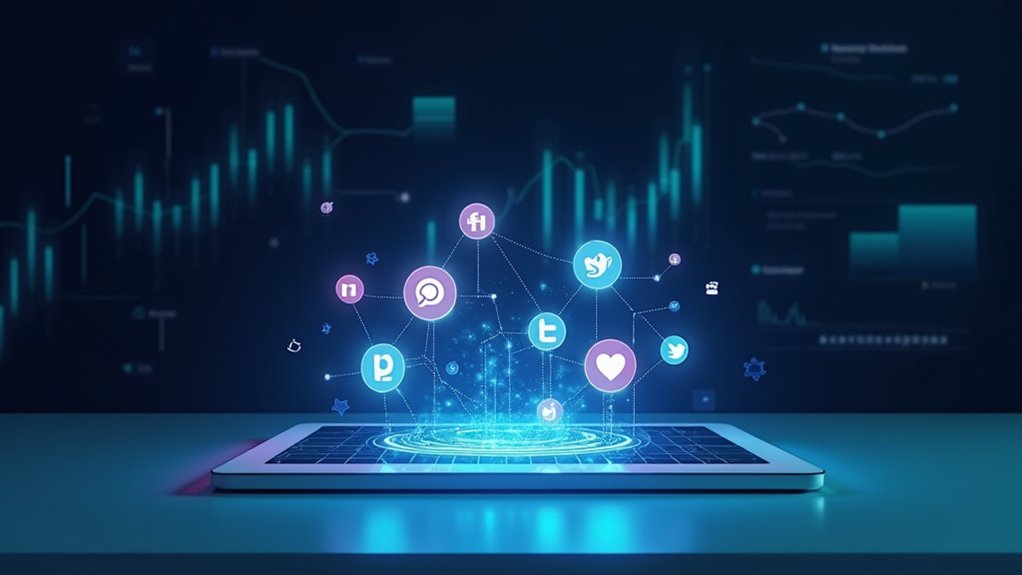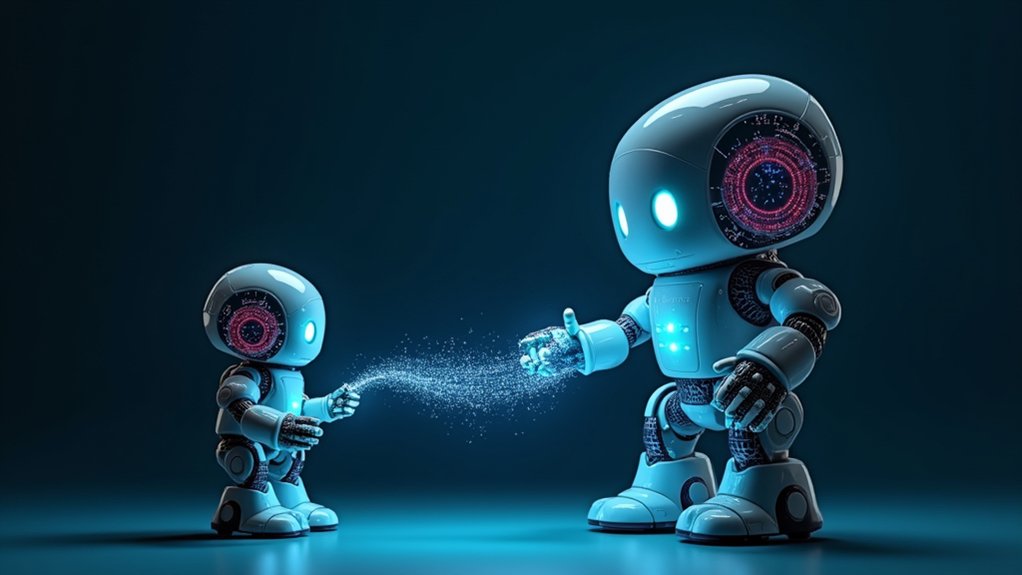AI tools are software applications that use artificial intelligence to perform tasks usually done by humans. They leverage technologies like machine learning and natural language processing to analyze data, create content, and make predictions. These tools help businesses increase efficiency, improve customer experiences, and cut costs across industries including healthcare, banking, and marketing. AI tools face challenges with bias and privacy concerns as they continue to evolve and expand.

Revolution is happening in the digital world with artificial intelligence tools changing how we work and live. AI tools are software applications that use technologies like machine learning, natural language processing, and computer vision to perform tasks that typically require human intelligence. These tools range from simple applications that automate basic tasks to complex systems that can analyze data, make predictions, and even create content.
Companies are using AI tools for many different purposes. Business intelligence systems analyze large amounts of data to help managers make better decisions. Customer service chatbots answer questions and solve problems without human intervention. Marketing teams use AI to create personalized recommendations for customers based on their past behavior. Banks and financial institutions rely on AI to detect unusual patterns that might indicate fraud. In healthcare, AI dramatically enhances diagnostic capabilities through advanced imaging analysis that can detect diseases earlier than traditional methods.
AI is transforming business operations across all sectors, from data analysis to fraud detection and personalized customer experiences.
The benefits of these tools are significant. They work faster than humans and don't need breaks. They can process massive amounts of information quickly and find patterns that people might miss. Many businesses report increased efficiency, better customer satisfaction, and reduced costs after implementing AI tools.
However, AI tools come with challenges. Some AI systems make biased decisions if they're trained on biased data. There are concerns about privacy when AI collects and analyzes personal information. Organizations also need skilled professionals to develop and maintain these systems. AI may produce inaccurate outputs that could lead to misinformation if not properly verified.
Popular AI tools include ChatGPT for generating human-like text, TensorFlow for building machine learning models, and DALL-E for creating images from text descriptions. Many companies use IBM Watson and Google Cloud AI for various business applications. The market for these technologies is experiencing explosive growth, with the global AI software market projected to reach $896.32 billion by 2029.
Looking ahead, AI tools are becoming easier to use through no-code platforms that don't require programming knowledge. More AI systems are being built to run directly on devices rather than in the cloud. Researchers are working to make AI decision-making more transparent and explainable.
As AI continues to evolve, it's increasingly becoming integrated with other technologies like the Internet of Things, creating smarter, more connected systems.
Frequently Asked Questions
Can AI Tools Replace Human Creativity Completely?
AI tools can't completely replace human creativity. While AI can generate content and boost efficiency, it lacks emotional intelligence and original thinking.
Experts say machines don't understand cultural context or have human experiences. Current technology only mimics creativity based on existing data.
Instead, the future points to collaboration, with humans providing vision while AI handles execution tasks.
How Much Do Advanced AI Tools Typically Cost?
Advanced AI tools have a wide price range.
Enterprise platforms like IBM Watson cost from $7,000 monthly, while cloud-based services from Google and Amazon charge hourly rates between $0.05 and $32.
Custom AI solution development ranges from $20,000 to over $1 million.
Business tools like Salesforce Einstein start at $50 per user monthly.
Companies also spend $150-$350 hourly for AI consulting services.
Do AI Tools Pose Security Risks to Businesses?
AI tools do pose security risks to businesses.
Recent studies show 96% of executives believe generative AI increases security breach likelihood. These tools can leak sensitive data, including personal information and trade secrets.
Threats include AI-powered phishing emails, automated hacking, deepfake scams, and data poisoning attacks.
Additionally, unclear regulations around AI create compliance challenges for companies as governments develop new laws addressing these technologies.
What Skills Are Needed to Effectively Use AI Tools?
Effective AI tool users need a mix of technical and soft skills, experts say.
Basic programming knowledge helps customize AI solutions. Important thinking is essential for spotting errors in AI outputs.
Domain expertise guarantees AI is applied appropriately to specific problems. Communication skills allow users to explain AI results to others.
As AI tools evolve, adaptability remains vital for keeping pace with new developments.
Are There Ethical Concerns With AI Tool Implementation?
Ethical concerns with AI tools are significant and growing.
Privacy issues arise as AI collects personal data that could be misused.
Bias in algorithms can lead to unfair treatment in hiring and other decisions.
Many AI systems lack transparency, making it hard to understand how they work.
There's also worry about job losses as AI automation replaces human workers in various industries.









